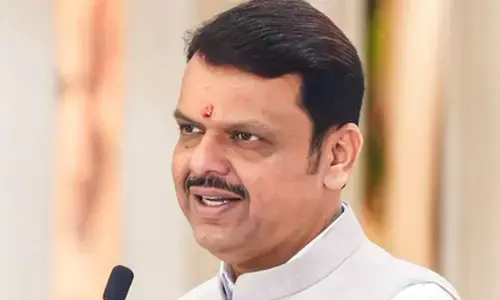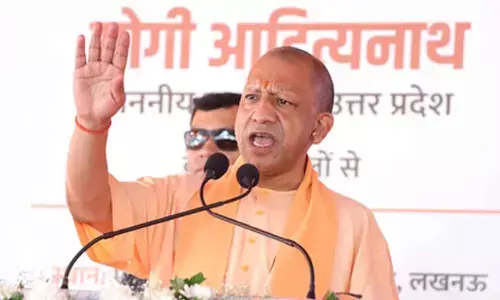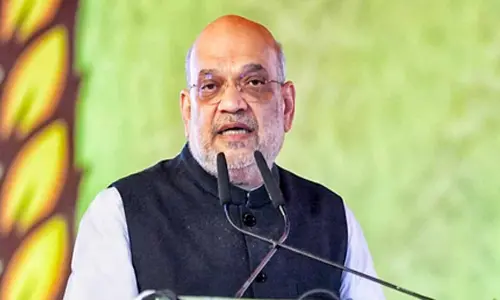Time for a historical transformation in Kashmir

Lieutenant Governor of Jammu and Kashmir at the Jammu & Kashmir Real Estate Summit 2021.
A first-of-its-kind real estate summit was organised recently in Jammu by the Centre and the J&K administration to encourage investments on non-agricultural land in Jammu and Kashmir and as usual this has come in for criticism from Kashmiri separatist groups, political parties and also the Congress and the CPM.
A first-of-its-kind real estate summit was organised recently in Jammu by the Centre and the J&K administration to encourage investments on non-agricultural land in Jammu and Kashmir and as usual this has come in for criticism from Kashmiri separatist groups, political parties and also the Congress and the CPM. As usual the tone and tenor of this criticism matched every bit the language of the Indian haters from across the border.
The chorus is not bewildering as this has become a regular feature since the advent of the BJP- led government since 2014. Outsiders - those not classified as 'permanent residents' - had earlier been barred from purchasing or owning land but this was changed after the centre scrapped Article 370 in August 2019, thereby removing special status for J&K. Local protesters and regional political parties have accused the centre of "putting J&K up for sale". The voices of dissent in this regard feel that they have a birthright to own Kashmir. They often refer to 'Indian forces' and their brutalities when any terrorist is killed. What is also not strange is the fact that none of these 'secular' forces in India question the denial of even ordinary civil rights to the Kashmiris in the occupied-Kashmir of Pakistan. They never talk of the forced demographic change in occupied Kashmir by Pakistan which settled Pathans and other tribal populations in the so-called Azad Kashmir.
The fact that none of the Kashmiris there are allowed to own or run newspapers or other media organisations in the area is also not condemned in our free Kashmir. Yet, India's efforts to remove the inequalities in Kashmir by the abrogation of Article 370 are questioned. It is a historical transformation that is required in Kashmir and another event is to be held in May in Srinagar.
Under the new J&K Development Act, the term 'being a permanent resident of the State' as a criteria has been omitted, paving the way for investors outside J&K to invest. As a result, any citizen of India can buy non-agriculture land in J&K," it said. When Kashmiris are allowed to invest money in properties elsewhere in the country, why should other Indians not be allowed to is a question that begs an answer. Non-locals are not allowed to settle in Kashmir, but terrorists of all denominations could settle down.
Recently the Centre told Parliament that only seven plots of land had been purchased in J&K following the scrapping of special status. Allowing people from outside J&K to buy land in the UT was one of the major talking points for the BJP and the Centre, but so far that doesn't seem to be the case. Opposition parties have urged the government to focus on job creation rather than investment, given J&K is facing a massive unemployment crisis.
According to a recent Centre for Monitoring Indian Economy (CMIE) unemployment survey, J&K's unemployment rate is over 21 per cent. The all-India average is 7.8 per cent. Recently, the J&K administration was forced to suspend its decision to privatise the power sector, including transmission, after 20,000 employees - who alleged government resources were being systematically sold off - went on strike. The Army had to be called in to operate grid stations. How does the UT develop without investments? Or, those opposing the move seek only terror funds from Pakistan?














